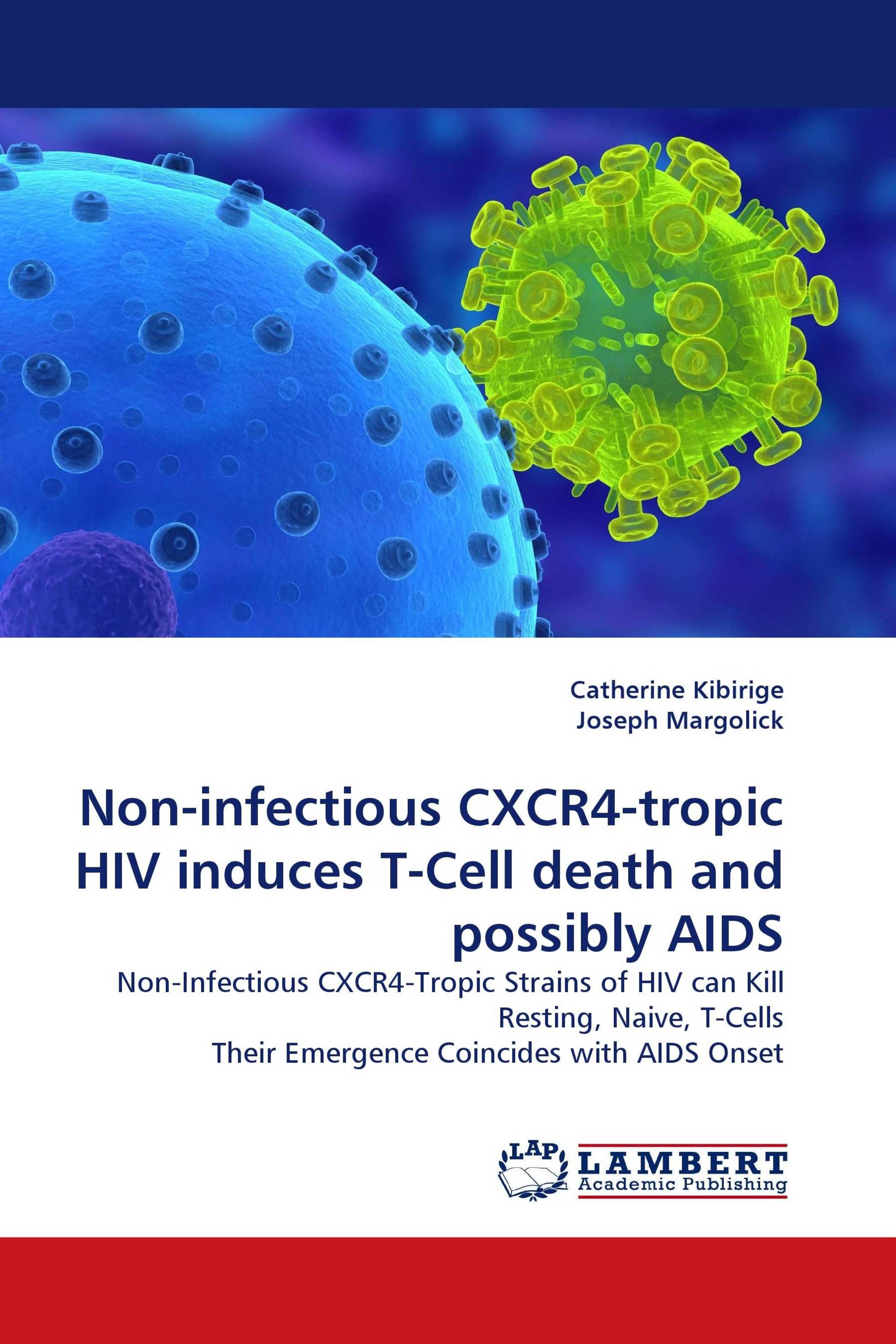Non-infectious CXCR4-tropic HIV induces T-Cell death and possibly AIDS
Non-Infectious CXCR4-Tropic Strains of HIV can Kill Resting, Naive, T-Cells Their Emergence Coincides with AIDS Onset
LAP Lambert Academic Publishing ( 2010-06-04 )
€ 59,00
A gradual decline in CD4 T-Cells is the main hallmark of HIV infection. At the "T-Cell inflection point", there is an accelerated CD4 T-Cell decline and the onset of CD8 T-Cell decline, leading up to Aquired Immune Deficiency Syndrome (AIDS). Strains of HIV that can bind the CXCR4 co-receptor emerge prior to this, suggesting that they contribute to immune failure by inducing death in naive, CXCR4-bearing T-Cells. Naive T-Cells are critical for replenishing the immune system after any kind of T-Cell loss. Additionally, the vast majority of HIV virions circulating during infection are defective and non- infectious. Their effects on immune cells are not clearly understood. In this study, primary peripheral blood T-cells were exposed to inactivated, non-infectious, HIV-1 virions. The study shows that when T-cell subsets were purified and isolated from each other, CXCR4- tropic virions induce a significantly greater decline in the number of naive, CD4 T-cells as opposed to the CCR5-tropic strains which initiate HIV infection (P=0.013). The emergence of CXCR4-utilizing HIV virions later on during infection may therefore contribute to the development of AIDS.
Book Details: |
|
|
ISBN-13: |
978-3-8383-7368-3 |
|
ISBN-10: |
3838373685 |
|
EAN: |
9783838373683 |
|
Book language: |
English |
|
By (author) : |
Catherine Kibirige |
|
Number of pages: |
136 |
|
Published on: |
2010-06-04 |
|
Category: |
Biology |




